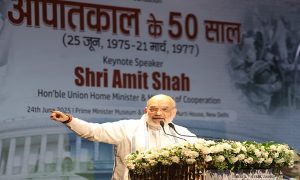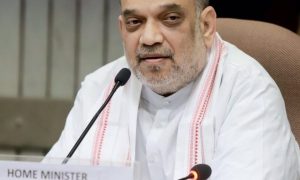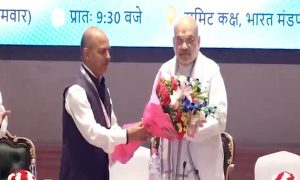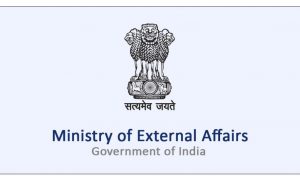Union Minister of Environment, Forest and Climate Change (MoEF&CC), Bhupender Yadav called for a need to strike balance between development on one side and a pollution-free environment on the other. The Union Minister was addressing the valedictory session at the “Conference On Environmental Diversity And Environmental Jurisprudence: National And International Perspective” in Chandigarh University, Mohali on May 8.
Law & Justice
India’s environmental law and policy are not only about protection and conservation – it is also about equity and justice. Emphasizing environmental diversity and environmental jurisprudence, the Union Environment Minister stated that environmental diversity is a concept of species composition between areas correlated with differences in environmental conditions. This is potentially significant for conservation planning, he further added.
The latest IPCC Working Group report has also justified India’s emphasis on equity in sustainable development. The report reaffirmed India’s call for equity and climate justice and stated that the developed countries must take lead in urgent mitigation and provide finance for adaptation, loss, and damage.
Stockholm+50
Stockholm+50 is an international meeting convened by the United Nations General Assembly to be held in Stockholm, Sweden from 2-3 June 2022. The meeting will commemorate 50 years since the 1972 United Nations Conference on the Human Environment. Some 122 countries attended, and participants adopted a series of principles on the environment, including the Stockholm Declaration and Action Plan for the Human Environment. The United Nations Environment Programme was created as a result of the conference.
Union Minister Bhupender Yadav highlighted that as the world gears up to gather in Stockholm in the next three weeks, India has been at the forefront in implementing its international commitments which were taken up in Stockholm Conference in 1972.
Following the Stockholm Conference in 1972, the Water Act of 1974 and the Air Act of 1981 were enacted. Further, India is currently implementing the National Clean Air Plan (NCAP) which aims to clean up India’s air through a range of interventions on local to the global stage.
Rio Declaration, 1992
In pursuance of India’s commitment to the Rio Declaration, 1992, India has a robust Environmental Impact Assessment Process. India, today is among the few countries in the world to implement the Convention on Biological Diversity in letter and spirit. The Rio Declaration highlighted how different social, economic, and environmental factors are interdependent and evolve together, and how success in one sector requires action in other sectors to be sustained over time.
The primary objective of the Rio ‘Earth Summit’ was to produce a broad agenda and a new blueprint for international action on environmental and development issues that would help guide international cooperation and development policy in the twenty-first century.
Further, India has operationalized the Access and Benefit Sharing under the Nagoya Protocol. The Union Minister said that effective decision-making power concerning biodiversity should lie with the local communities. As a result 2,75,000 Biodiversity Management Committees are today functional in India in every village and local body.
The Nagoya Protocol on Access to Genetic Resources and the Fair and Equitable Sharing of Benefits Arising from their Utilization to the Convention on Biological Diversity, also known as the Nagoya Protocol on Access and Benefit Sharing is a 2010 supplementary agreement to the 1992 Convention on Biological Diversity.
India’s record
In the last five years, the government of India has undertaken the task of democratizing biodiversity conservation. Further, not only has India achieved its Paris Agreement goals but the COP 26 goals further prove India’s seriousness and commitment to climate action.
India’s per capita carbon emission is among the lowest in the world (two tonnes). On the global stage, India gave the concept of sustainable lifestyles and climate justice, both of which found a place in the preamble of the Paris Agreement. The latest IPCC Working Group III report further justifies India’s emphasis on equity at all scales in climate action and sustainable development.




























 WhatsApp us
WhatsApp us